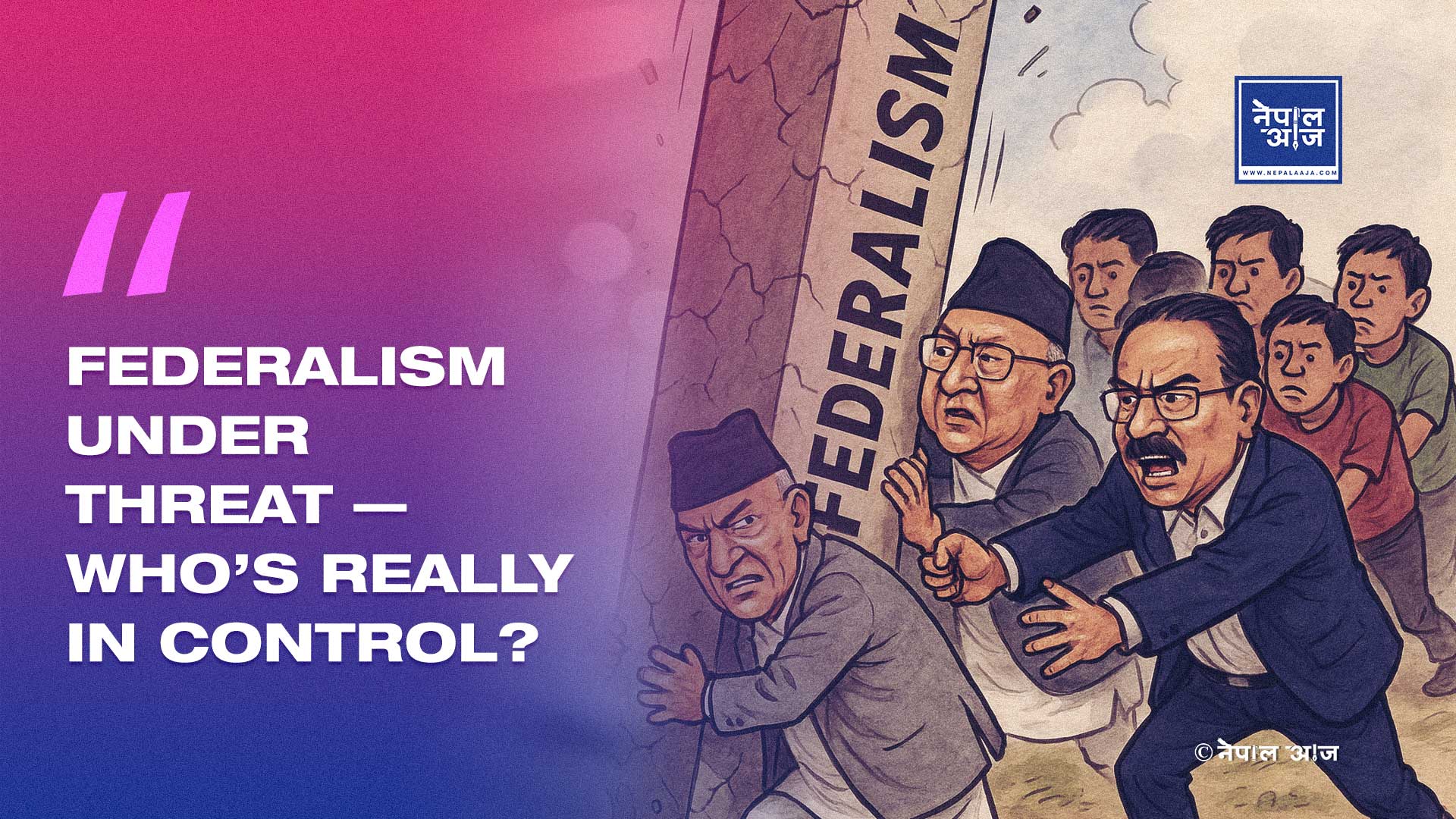Federalism in Peril: Nepal’s Power Centralization Threatens the Dream of Inclusive Governance

Kathmandu —
Nepal’s federal experiment — once hailed as a historic victory for inclusion and equality — is now faltering under the weight of central interference and political regression. The system that was meant to heal centuries of injustice and bring power closer to the people is slowly being hollowed out by the same old leaders who once promised to protect it.
The Fading Ideal of Federalism
Federalism, envisioned as a revolutionary shift to end centralized domination, is today facing an existential crisis. Political analysts warn that leaders like K.P. Oli, Sher Bahadur Deuba, and Pushpa Kamal Dahal ‘Prachanda’ — once key architects of Nepal’s new political order — are now undermining it from within.
Instead of empowering provinces, these veteran leaders have tightened their grip on the state. Provincial governments have been reduced to “administrative branches of Singha Durbar”, stripped of autonomy and dependent on central budgets. Power-sharing has been replaced by power-hoarding.
“Federalism was never about dividing power — it was about correcting historical injustices,” said a constitutional expert. “But now, it’s being reduced to a token gesture by those afraid of losing control.”
Inclusion Under Threat
Nepal’s 2015 Constitution promised a deeply inclusive federal structure, ensuring representation for Madhesis, Janajatis, Dalits, women, and marginalized communities. That promise, however, is fading fast.
Old political elites have entrenched themselves in provincial structures, silencing new and diverse voices. The dominance of the same centralized mindset has reignited dissatisfaction in the Madhes region and frustration among indigenous and minority groups.
“What we see today is not unity in diversity — it’s forced control disguised as harmony,” said a social researcher based in Janakpur.
Cycle of Failure and Stagnation
Decades of centralized rule have yielded neither stability nor progress. Now, as development stalls, the same leaders blame federalism — the very system designed to solve these failures.
Provinces still lack fiscal autonomy. Administrative staff remain under central control. Political appointments dominate bureaucracy. And when projects stall, Kathmandu points fingers outward.
As one provincial minister put it:
“We were promised self-rule. What we got was self-doubt.”
The result: worsening corruption, frozen development budgets, and a mass exodus of disillusioned youth seeking opportunity abroad.
The Gen-Z Mandate: Reform, Not Rejection
A new generation — Gen-Z — is emerging as the last line of defense for Nepal’s federal dream. Analysts say the task is not to dismantle federalism, but to purify and strengthen it.
Young leaders and civic movements are demanding:
-
Full constitutional rights for provinces and municipalities to function independently.
-
Accountability and transparency in provincial spending and governance.
-
An ideological shift away from feudal, top-down thinking that keeps power concentrated in Kathmandu.
“To weaken federalism is to reject Nepal’s inclusive future,” says political commentator Rashmi Koirala. “For the youth, this is not just political — it’s existential. This is their last chance to save the republic’s core vision.”
A National Call to Action
As Nepal edges toward another round of political reshuffling, the message from reformists and young activists is clear: federalism is not the problem — the old mindset is.
The defense of diversity, inclusion, and local autonomy is now a generational duty. The nation stands at a crossroads — between clinging to outdated centralism or embracing a modern, decentralized, and accountable federal future.
“This time, let’s choose not the face of a leader,” the campaign’s closing line reads,
“but the future of federalism itself.”





![From Kathmandu to the World: How Excel Students Are Winning Big [Admission Open]](https://www.nepalaaja.com/img/70194/medium/excel-college-info-eng-nep-2342.jpg)


